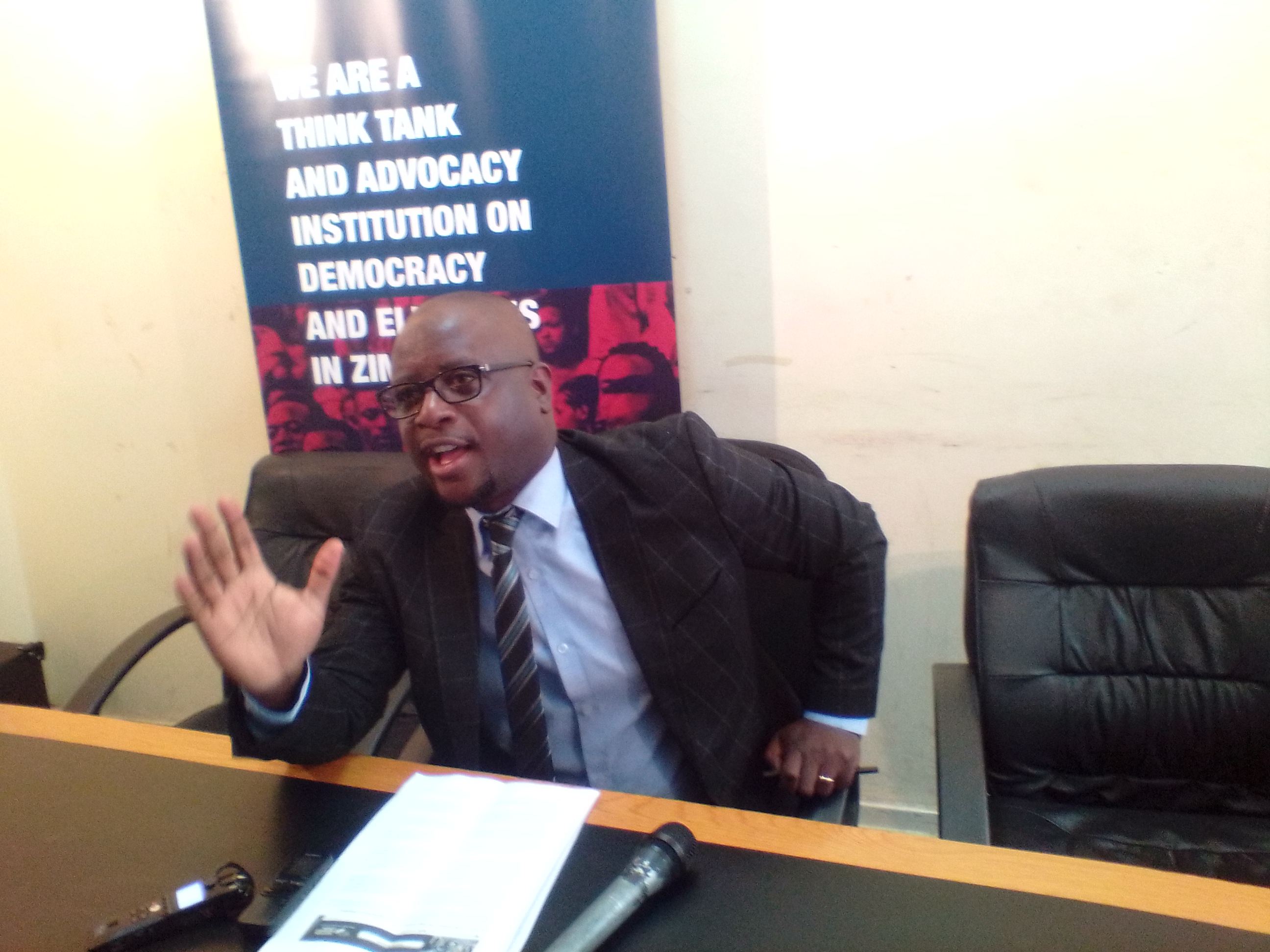By Joice Mukucha
The Election Resource Centre (ERC) has launched an Analysis of the Legal Framework of Elections in Zimbabwe which is meant to govern the country’s elections, advocate for electoral reforms and improve the conduct of future elections.
The framework will be periodically used to test what is presented as reforms against the status of the legal framework of elections in Zimbabwe. Fifteen months since the July 30 2018 harmonised elections, ERC feel that comprehensive electoral reforms remain pending notwithstanding the establishment of an executive driven, Inter-Ministerial Taskforce on Political and Electoral reforms, attempts to introduce new media and public order laws.
Briefing the media in Harare on the 3rd of October 2019, the ERC director Tawanda Chimhini pointed out that the analysis of the framework and the findings will clear the air on what the current legal provisions provide for.
“Over the last four months, the ERC has been analysing the legal framework for elections. This is being drawn from how the 2018 elections were conducted and some of the observations that were made regarding that election. Clearly, the legal framework of our elections requires a bit of attention if we are to strengthen the quality of elections.
“The methodology we used was to pick up major issues that were raised pertaining to elections. The analysis looks at ten primary issues that we felt had a bearing on the electoral framework which in our view if those issues were dealt with, they could fundamentally change the complexion of our elections in Zimbabwe. In our view, issues like voter education, results management, among others remain a priority in terms of the agenda for electoral reforms, argument being that these were part of the issues that raised major areas of contestation in the last election,” he said.
Concerning the need to align laws with the Constitution as an urgent priority, Chimhini emphasised that not much was being said about the undeterred use of unconstitutional provisions maintained on the statutes.
“If authorities embraced constitutionalism, unconstitutional provisions would be invalid to the extent of their inconsistency in line with Section 2 of the Constitution. Such invalidity would introduce some impetus on authorities to draft and legislate constitutional provisions to replace the unconstitutional ones,” he said.
Political parties are recognised by ERC among key beneficiaries of electoral reforms since their understanding of the current state of the legal framework will assist in their dialogue and engagement on how future elections can be legislatively improved.
The legal framework for election presents one of the three fronts where electoral reforms in Zimbabwe will need to be implemented. The other two fronts include the administrative framework and the political environment.
In launching the framework, ERC appreciates the role of Government in determining the legislative agenda for Parliament as the Ministry of Justice, Legal and Parliamentary Affairs consider which reforms to legislate. The findings of the analysis may be useful in inclusively determining which issues to prioritise. It also recognises efforts of other civil society players in advocating for electoral reforms through proposing draft provisions to support electoral reforms.
ERC Board Chairperson Trust Maanda said they were going to use many multi-faceted strategies to engage the Government in which SADC is one of the key bodies. Political parties, he said were the beneficiaries of the changing laws.
The ERC is aiming to engage citizens as important stakeholders that support electoral reforms and ensure that they have the correct information that equips them to engage in discussions around electoral reforms.






